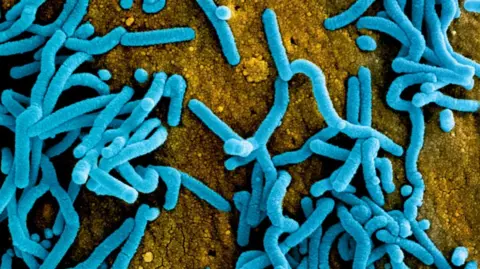Listen up, ladies. Doctors don't want you to ignore these health signs, symptoms
Doctors say women tend to ignore a lot of signs and symptoms indicating serious health risks. Here is a comprehensive guide to recognising them.

“It is just an everyday headache.”
“Oh, this is nothing but my regular bloating issue.”
“Periods? They are mostly irregular, but that’s about it.”
These are just a few serious signs and symptoms that women often dismiss as routine discomforts. However, these seemingly minor inconveniences are often a sign of underlying health issues. Persistent fatigue, for instance, could be a warning sign of heart disease. Similarly, constant bloating is a common symptom of ovarian cancer that often goes unnoticed.
 Doctors call ovarian cancer a silent killer, as its common symptoms like bloating and abdominal pain are often taken lightly. (Photo: AI Generative)
Doctors call ovarian cancer a silent killer, as its common symptoms like bloating and abdominal pain are often taken lightly. (Photo: AI Generative)
Doctors highly recommend recognising and addressing these signs early to prevent complications and ensure overall well-being. This constant health monitoring should begin as early as the age of 20 – with a monthly self-breast examination. Breast cancer, the most common cancer affecting women, is also on the rise among women under 30 in India.
In your 30s and 40s, the body undergoes several changes, increasing the risk of complications if early signs are ignored. This makes it important to closely monitor your health, maintain an active lifestyle, and stay aware of age-related health risks.
Monitoring reproductive and hormonal health
“A woman should begin monitoring her health closely from the time of menarche (when she gets her first period), but many health issues start to emerge around the age of 30. At 30, ovarian reserve begins to decrease, and this is also when conditions like breast pain, premenstrual syndrome (PMS), or menstrual cycle pain (such as congestive dysmenorrhoea) can appear,” says Dr Manjula Anagani, Robotic Gynaecologist & HOD, Care, Women and Child Institute, CARE Hospitals, Hyderabad.
Some of the signs you should certainly not ignore include:
-
Painful menstrual cycle and heavy bleeding: It could indicate endometriosis, fibroids, PCOS, or hormonal imbalances. Endometriosis is a condition where tissue similar to the uterine lining grows outside the uterus. “If endometriosis is neglected in its early stages, when it is still superficial and primarily causes pain, it can progress to deep infiltrating endometriosis. This can significantly impact quality of life, affecting fertility and causing severe pain, including dyschezia (pain during bowel movements). Over time, it can lead to chronic pain and a condition known as frozen pelvis, which can severely limit daily activities,” explains Dr Anagani.
-
Breast pain, lumps, or nipple discharge: Breast pain can be hormonal, but lumps and nipple discharge may indicate infections or breast cancer. Early detection helps identify breast cancer at an early and treatable stage. Dr Manju Khemani, Principal Director & Head of Unit, Obstetrics and Gynaecology, Max Smart Super Speciality Hospital, Saket, recommends that every woman perform a monthly self-breast examination after each period. Women over 40 should go for a mammography if they notice any lump.
-
Unexplained fatigue: Fatigue is often overlooked as a result of regular stress or a hectic schedule. However, persistent unexplained fatigue can indicate anaemia, thyroid disorders, or diabetes. Heavy periods are often the primary cause of iron deficiency and subsequent anaemia, which can eventually lead to heart issues. Fatigue could also signal thyroid problems, which can cause weight gain, depression, and hormonal imbalances.
-
Unexplained weight gain: Sudden weight gain is often linked to PCOS and thyroid disorders. Excess weight can also increase the risk of heart disease.
-
Increased urination or frequent UTIs: Increased frequency of urination or recurrent UTIs can lead to kidney dysfunction, as urinary infections are a common cause of chronic kidney disease (CKD) in women, says Dr Khemani.
-
Bloating, indigestion, or gastric discomfort: Many women resort to medications like Pan40 to deal with gastric issues, but persistent bloating, abdominal pain, or changes in bowel habits can be common symptoms of ovarian cancer, especially after age 50. Dr Khemani recommends that women experiencing such symptoms consult a doctor and get an ultrasound done.
-
Bleeding after menopause: Bleeding after menopause should not be taken lightly, as it could be a sign of endometrial cancer or fibroids.
Cervical cancer is on the rise
Cervical cancer is now the second most common cancer affecting women. Doctors say that it often goes undetected until later stages because the symptoms may be mild or mistaken for other conditions.
Bleeding between periods or after intercourse should not be ignored. Persistent pelvic pain or unusual vaginal discharge (such as watery, foul-smelling, or blood-streaked discharge) should not be taken lightly.
Early detection through screenings (Pap smear test) and vaccination (HPV) can significantly improve survival rates. More than 90% of all cervical cancer cases are linked to the Human Papillomavirus (HPV). A simple HPV vaccine shot can protect women from this common cancer. Gardasil 9, Gardasil, and Cervavac are among the well-known HPV vaccines available in India. The vaccine is approved for use in both males and females aged 9 to 45 years.
Keeping other cancers in check
Dr Aditya Sarin, Associate Consultant, Medical Oncology, Sir Gangaram Hospital, Delhi, highlights several signs that could signal cancer among women:
-
Unexplained weight loss: Could indicate pancreatic, ovarian, or stomach cancer.
-
Persistent bloating and abdominal pain: Often misdiagnosed but can signal ovarian cancer.
-
Unusual vaginal bleeding: May indicate cervical, uterine, or vaginal cancer, especially postmenopausal bleeding.
-
Breast lumps, skin changes, or nipple discharge: Could be early signs of breast cancer, including aggressive triple-negative breast cancer.
-
Chronic fatigue: May be linked to cancer or heart disease.
-
Changes in bowel or bladder habits: Could signal colorectal cancer.
-
Persistent cough or hoarseness: A potential symptom of lung cancer, which is rising among women.
Heart health issues often get overlooked in women
Post-menopausal women are at high risk of developing heart diseases.
“The risk of any cardiac illness increases with age. In women especially, the risk increases post-menopause. So, all women should start closely monitoring their health signs and symptoms after menopause because of the hormonal changes that occur, which increase the risk of cardiac illness,” says Dr Shubendu Mohanty, Senior Consultant Cardiology, Sharda Care, Greater Noida.
Doctors, however, warn that chest pain is not the only symptom to watch out for. Fatigue, breathlessness, increased sweating, pain in the arms or jaw, and generally feeling low could also be signs of a heart issue.
Doctors say women experience atypical symptoms of heart diseases like fatigue, increased sweating, and pain in jaws. These symptoms are often less severe and can be overlooked. (Photo: Getty)
“Data shows that women are more likely to experience atypical symptoms of heart disease. These symptoms are often less severe and can be overlooked, even when women present to the emergency room. The chances of misdiagnosis or missing a cardiac diagnosis are higher in women than in men. One reason for this is that women may exhibit minor ECG changes, even when they are healthy,” explains Dr Mohanty.
“Heart disease is often associated with severe chest pain, but symptoms can differ, especially in women and the elderly. They may experience extreme fatigue, breathlessness, weakness, or a sensation of dyspepsia (such as a burning feeling in the chest). Other signs include increased sweating, pain in the arms, jaw, or upper back, and a general sense of feeling low, with reduced energy to perform daily activities,” says Dr PRLN Prasad, consultant - interventional cardiologist , Gleneagles BGS Hospital, Bengaluru.
Those suffering from (or with a history) of diabetes, smoking, hypertension should be extra cautious.
Dr Alok Chopra, cardiologist and co-founder of Aashlok Hospital in Delhi, says obesity rates, poor dietary habits, sedentary lifestyle, and over burden and stress in familial life add significantly to the problem.
“Early menopause is common in Indian women and brings hormonal changes which elevate blood pressure and heart disease. Additionally, women with gestational diabetes are at greater risk,” Dr Chopra adds.
Apart from keeping a check on symptoms, routine checkups for blood pressure, sugar and cholesterol, and a healthy diet, regular exercise, stress management should also be prioritised to mitigate heart health risks.
Early detection of neurological issues is important
As women approach 40, they undergo several physiological and hormonal changes. These include the onset of menopause and can at times mimic symptoms of neurological or heart diseases. Doctors strongly suggest not ignoring certain signs, as early intervention helps prevent complications like strokes.
“Any symptom or sign, especially headache, dizziness, or breathlessness on exertion, should not be ignored. Women often have lifestyle diseases that are misdiagnosed as psychosomatic disorders,” says Dr Anshu Rohatgi, Vice-Chairperson, Neurology, Sir Ganga Ram Hospital, New Delhi.
Dr Jyoti Wadhwa, Vice-Chairperson and Head of Medical Oncology at Paras Health, also highlights the growing concern about strokes in younger women:
"There’s been an alarming rise in strokes in younger women, largely due to rising obesity rates and hypertension. Many don’t take the initial signs - like dizziness or headaches - seriously, which can lead to fatal outcomes if not caught in time."
Do not ignore the following signs and symptoms:
-
Frequent headaches and dizziness
-
Breathlessness on exertion
-
Sudden numbness or weakness (especially one-sided) – a possible stroke warning
-
Vision problems, slurred speech or confusion
-
Tingling or numbness in limbs
“Women are often ignored because their symptoms are not taken as seriously as men’s," highlights Dr Rohatgi, and adds: "Many lifestyle diseases, including cardiovascular and neurological conditions, are overlooked, despite the rising incidence of obesity, smoking, and alcohol consumption (which make women equally prone to those health issues)."
Don't ignore bone health
“Conditions like early arthritis, bone weakness, and chronic joint pains are becoming increasingly common among women. Ignoring minor issues like aches, stiffness, or fatigue can not only worsen the intensity of the pain but also increase your chances of experiencing long-term mobility issues while reducing the quality of life,” says Dr Anup Khatri, Senior Consultant - Orthopaedics, Gleneagles Hospital, Parel, Mumbai.
Health experts emphasise that women, especially in their late 30s, should start regular health screenings as bone strength begins to decline. Ignoring initial symptoms, on the contrary, can lead to severe complications.
Persistent back pain, joint stiffness, reduced flexibility and balance issues, weakness, and unexplained pains should not be ignored.
Gut issues
Right from their 20s, issues like gut-related disorders, digestive problems, and metabolism changes can develop silently. Early detection keeps complications like IBS, nutrient deficiencies, and acid reflux at bay. When ignored, they lead to chronic inflammation and severe digestive issues.
“So, women should not ignore warning signs like persistent stomach pain, frequent heartburn, unintended weight loss or gain, or irregularities in their menstrual cycles. These signs can be an indication of various underlying health issues like ulcers, liver issues, or digestive disorders, which can significantly worsen if overlooked,” says Dr Aklesh Tandekar, Head Consultant, Critical Care, Wockhardt Hospitals, Mumbai.
Remember to not wait for diseases to progress; early detection saves lives
Source: India Today



























































